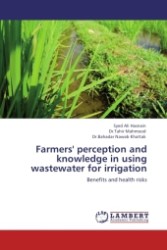Full Description
This insightful book explores the complexities and opportunities of implementing reform in higher education systems. Chapters analyse the diverse factors taken into account at the system level, the institutional level and the individual grass-root level, outlining potential causes of resistance from the academic community and highlighting innovative avenues for change.
Leading global scholars delve into the critical challenges of policy implementation in higher education, from academic inbreeding and the need to preserve diversity to the impact of low birth rates and changing population dynamics. They investigate emerging ecological approaches and evaluate the success of the foundational university model, drawing on detailed case studies to examine differences in university autonomy and governance between Europe and the US. Shedding light on theories such as new public management, new managerialism and networked governance, the book ultimately underlines key strategies for effecting change against a backdrop of globalisation, massification and marketisation.
Reform and Change in Higher Education is an invaluable resource for students and researchers in education, higher education and public policy. Its insights into the practical difficulties of higher education reform will also greatly benefit university and government professionals and policymakers.
Contents
Contents
1 Introduction to reform and change in hiigher education:
challenges and innovations 1
PART I MACRO LEVEL: SYSTEM LEVEL POLICIES
2 Reshaping tertiary systems for the 21st century: valuing and
strengthening differentiation of missions and diversity of
opportunity 14
3 Shaping a higher education system: diversity, hierarchy,
vitality - an ecological approach 35
4 Dual and unitary higher education systems: the UK as a case
study 58
5 Landscape change in higher education in Ireland: creating
Technological Universities 80
6 The RJIES and the reform of governance and management of
higher education in Portugal 100
7 Demographic evolution in Portugal and its impact on higher
education 116
PART II MESO LEVEL: INSTITUTIONAL LEVEL POLICIES
8 The Autonomy and governance of higher education
institutions in Portugal: the US case and the European
imitation 144
9 New public management, managerialism, networked
governance and autonomy: the case of RJIES (2007) 165
10 University governing boards: resilience and renewal 184
11 The role of students in higher education governance: insights
for legislative higher education reforms 199
12 The case of university foundations in Finland: evaluating
success 218
13 Foundations in Portuguese higher education 244
PART III MICRO LEVEL: ACADEMIC STAFF
14 Globalisation, cultures and higher education: between
hegemonic and counter-hegemonic possibilities 264
15 Academics in a new working environment: the effect of New
Public Management on working conditions 283
16 Academic inbreeding in Portugal 301
17 Conclusion: key tensions in policy implementation in
contemporary higher education 320








